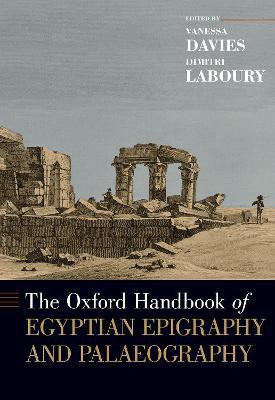The Oxford Handbook of Egyptian Epigraphy and Palaeography(English, Hardcover, unknown)
Quick Overview
Product Price Comparison
The unique relationship between word and image in ancient Egypt is a defining feature of that ancient culture's records. All hieroglyphic texts are composed of images, and large-scale figural imagery in temples and tombs is often accompanied by texts. Epigraphy and palaeography are two distinct, but closely related, ways of recording, analyzing, and interpreting texts and images. This Handbook stresses technical issues about recording text and art and interpretive questions about what we do with those records and why we do it. It offers readers three key things: a diachronic perspective, covering all ancient Egyptian scripts from prehistoric Egypt through the Coptic era (fourth millennium BCE-first half of first millennium CE), a look at recording techniques that considers the past, present, and future, and a focus on the experiences of colleagues. The diachronic perspective illustrates the range of techniques used to record different phases of writing in different media. The consideration of past, present, and future techniques allows readers to understand and assess why epigraphy and palaeography is or was done in a particular manner by linking the aims of a particular effort with the technique chosen to reach those aims. The choice of techniques is a matter of goals and the records' work circumstances, an inevitable consequence of epigraphy being a double projection: geometrical, transcribing in two dimensions an object that exists physically in three; and mental, an interpretation, with an inevitable selection among the object's defining characteristics. The experiences of colleagues provide a range of perspectives and opinions about issues such as techniques of recording, challenges faced in the field, and ways of reading and interpreting text and image. These accounts are interesting and instructive stories of innovation in the face of scientific conundrum.


